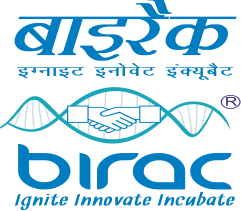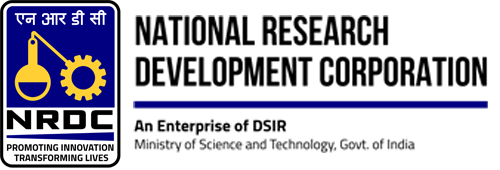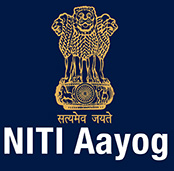| Application Guidelines | |
|---|---|
| Name of Programme | India-Singapore Collaborative Industrial Research & Development Programme – Request for Proposal (RFP) 2024 Between the Department of Science & Technology (DST), Government of India, and the Enterprise Singapore (EnterpriseSG), Government of Singapore |
| Important Dates | Announcement and Closing Date of Request for Proposal (RFP) Launch Date : 1st November 2024 Last Date : 28th February 2025
Announcement of Results: August 2025 Project start: from September / October 2025 |
| Who Can Apply? | Eligible Indian Applicants
Eligible Singapore Applicant
Note: The project content and budget should be balanced between the Singapore and the Indian participants. [Refer to Annexure 1: Eligibility Criteria and Annexure 2: Project Requirements for details] |
| Eligible Technology Areas | The collaborative projects should be innovative and focused on creating possibilities for future new technologies, services or processes that will eventually lead to commercialisation. DST and EnterpriseSG invite proposals in collaborative industrial research and development projects in all thematic areas. This RFP2024 is open to the applied R&D projects in all thematic areas, including.
|
| Request for Proposal 2024 | |
|---|---|
| Project Funding Support | DST and EnterpriseSG will implement a joint, merit-based project evaluation and selection process using their respective assessment processes. Funds will be provided in accordance with the national laws, rules, regulations and procedures established by each funding organisation, and/or each country. A minimum of 3, and maximum of 5 joint projects may be funded. Funding for R&D Participants in India
ELIGIBLE COST
|
| Eligible Technology Areas | The collaborative projects should be innovative and focused on creating possibilities for future new technologies, services or processes that will eventually lead to commercialisation. DST and EnterpriseSG invite proposals in collaborative industrial research and development projects in all thematic areas. |
INDIA–SINGAPORE Collaborative Industrial Research & Development Programme A Framework for Facilitating and Implementing Bilateral Science, Technology and Innovation Cooperation Request for Proposal 2024
| - | |
|---|---|
INDIA–SINGAPORE Collaborative Industrial Research & Development Programme A Framework for Facilitating and Implementing Bilateral Science, Technology and Innovation Cooperation Request for Proposal 2024 NON-ELIGIBLE COSTS:
Funding for R&D Participants in Singapore
|
INDIA–SINGAPORE Collaborative Industrial Research & Development Programme A Framework for Facilitating and Implementing Bilateral Science, Technology and Innovation Cooperation Request for Proposal 2024
| - | |
|---|---|
| Types of Projects to be Supported | The following types of projects will be considered for programme funding: R&D projects focusing on the co-development of new technologies, services or processes. The participants shall agree in advance on the Intellectual Property Rights and the commercialisation strategy of possible future products or processes in a Project Agreement Note: The participants shall agree in advance on the Intellectual Property Rights and the commercialisation strategy of possible future products or processes in a Project Agreement. [Refer to Annexure 3: Application Submission Process and Annexure 4: General Guidelines on Intellectual Property Rights (IPR) and Commercialisation plan for more details] |
| Selection Criteria |
|
| Duration | A 2-year project period. Projects may start immediately after the agreement signing with TDB. |
| Project Evaluation Stages and Process | Projects will be evaluated according to the standard evaluation processes of EnterpriseSG in Singapore and TDB-DST in India, respectively. The final selection of the proposals will be through a joint process mutually agreed by DST and EnterpriseSG. [Refer Annexure 5: Project Evaluation & Pre-Commencement Process for more details] |
| Finding a Partner | Both Parties will organise outreach activities together and independent to facilitate matchmaking. |
Indian- Technology Development Board (A statutory Body of Department of Science and Technology) and Enterprise Singapore (EnterpriseSG) open this Request for Proposals (RFP) to seize market opportunities and address the challenges our societies are faced with today.
This RFP is open for Indian and Singapore companies/organisations who jointly develop new/improved innovative technologies, processes and technology-based services. Project outcomes should be sustainable and commercialisable. The team should be led by a commercial company in the respective countries, and may include other parties such as research institutes or universities.
The RFP closes on 28 02 2025. Projects can commence only after the signing of the agreement with TDB-DST.
Singapore companies can apply for funding from EnterpriseSG, and Indian partners from DST. Applicants need to fulfil the national funding terms and conditions of their respective countries, with respect to areas such as eligibility, fundable costs and budget lines, reporting and other requirements. Refer to the respective country-specific information below for more details of the respective funding body’s terms and conditions.
The application guidelines above summarise the RFP. More detailed information on the RFP is available in the following annexures:
- Annexure 1 – Eligibility Criteria for Applicants
- Annexure 2 – Project Requirements
- Annexure 3 – Application Submission Process
- Annexure 4 – General Guidelines on Intellectual Property Rights (IPR)
- Annexure 5 – Project Evaluation & Pre-Commencement Process
IN INDIA
The Indian Project Coordinator (IPC) must be a commercial company that operates in and is headquartered in India (ideally, researchers or managers of these companies should be nominated as project coordinators). Academic institutions, other R&D institutes (including notfor-profit research institutes recognised by Defence Advanced Research Projects Agency, DSIR, DARPAN) that are headquartered and operate in India are encouraged to participate in the projects as co-investigators/partners.
Specific criteria for eligible applicants are as follows:
- The Indian Project Coordinator (IPC) company applying for the project must be incorporated in India under the Companies Act 1956/2013.
- At least 51% stake of the IPC Company must be owned by Indian citizens.
- The IPC should have the required expertise and team capacity to manage the proposed project1.
Please note for Indian applicants:
- Sole proprietors and partnership firms are not eligible for support under this programme.
- Companies headquartered and owned outside India and their subsidiaries in India, orvice versa, are not eligible to receive funding from DST under this programme.
Preferences will be given to:
- Indian companies having partnership with government-funded Indian academic and R&D institutions.
- Indian companies having in-house R&D Centre recognised by DSIR. For details, please refer to: http://www.dsir.gov.in/forms/irdpp/Application%20for%20R&D.pdf.
- Companies that fall under the Micro, Small and Medium Enterprise (MSME) category, as defined by the Government of India. For definition of MSME, please refer to: http://www.dcmsme.gov.in/ssiindia/defination msme.htm.
Note: An Applicant should not be having any ongoing project with TDB-DST, that has not been successfully completed, under any of its programs supported by TDB-DST.
Where business entities are participants in a project, but with no initial involvement in R&D activities, the project must show a plan of how capabilities are going to be developed in the business entity in the following years in order to:
- perform future R&D projects
- develop the human resource capability within the business
- take technologies that are being developed to market
- develop new intellectual property, and
- enhance the ecosystem of Indian technology-based companies
IN SINGAPORE
- The Singapore Project Coordinator (SPC) must be a commercial company. The SPC is responsible for the application submission in Singapore and towards EnterpriseSG;
- Be a business entity that is registered and physically present in Singapore;
- ≥ 30% local equity held directly or indirectly by Singaporean(s) / Singapore PR(s), determined by the ultimate individual ownership;
- Be financially able to see a project through to completion; and
- Not placed under the blacklist of EnterpriseSG.
A team of Indian and Singapore companies proposing an R&D project that meets the requirements in this area is eligible to apply to this RFP and does so in accordance with the national laws, rules, regulations and procedures of their jurisdiction or country
The project content and budget should be balanced between the Singapore and the Indian participants. Cost estimates must be congruous with the planned activities presented in the proposal.
Any team proposing an R&D project that addresses the requirements detailed below is eligible to apply to this RFP:
- Proposals must demonstrate the joint India-Singapore project team’s capacity to manage the project in their respective countries and the modes for coordination between the two sides. The participants shall have an organisation appropriate to ensuring effective implementation of the project.
- Projects must be innovative and market-driven, leading to the proposed development of new/improved technologies, processes or services, with a strong potential to commercialise.
- The project must have a civilian purpose.
- The project should have an obvious advantage and added value resulting from the technological cooperation between the participants from the countries (e.g. increased knowledge base, commercial leads, access to R&D infrastructure, etc.).
- The participants are required to have signed a consortium agreement.
- The IPC is responsible for the Indian application submission, leading the Indian part of the project and communicating with the SPC. Project Investigator (PI) will be an individual duly authorised by the IPC to this project on behalf of the IPC in India. The SPC is responsible for the Singapore application submission, leading the Singapore side of the project and communicating with the IPC.
- For the Indian side, a minimum of 50% of the total project costs must be incurred by the business partners.
- The projects should be in the Technology Readiness Levels (TRL) between 5-8. For new processes or technologies, the project should lead to the creation of low-cost alternatives of an existing technology.
- On the Indian side, should there be any change in the PI of the IPC, liability on account of the project will continue to rest with the IPC. The IPC shall ensure that the project is staffed with personnel of relevant qualification, experience and capability, as required, till project completion, so that the project execution is not impeded.
- Although it is not mandatory, it is strongly encouraged for projects to engage an enduser/first customer, on either side of the consortium.
IN INDIA
- The Indian Project Coordinator (IPC) may visit the TDB website: http://tdb.gov.in/ under the ‘Apply for Funding’-section.
- All applicants are required to register on the site. - Registration is a two-stage process. - Stage I – Registrant needs to provide basic information. - Stage II – The system will send a Login ID and Password to the email ID provided and ask for completion of registration.
- Application Submission Process:
- IPC needs to submit the Application online (no other mode of submission will be accepted) by 28 02 2025, 5:30 pm Indian Standard Time.
- Login with the same ID and password.
- Complete and submit the desired Application Form, along with the required supporting documents, as listed on DST’s website, by the deadline
- Upon Application submission, the system will send an auto-generated email acknowledgement to IPC, along with application reference number.
- The application must reflect collaborative, synergised and a balanced effort from both the IPC and the Singapore Project Coordinator (SPC), be written in English, and submitted using the prescribed process above.
IN SINGAPORE
- Singapore companies interested in applying should fill in the preliminary interest form by January 2025.
- Upon confirmation by EnterpriseSG, a unique link will be provided for application on the Business Grant Portal (BGP)
- Singapore companies must submit the Enterprise Development Grant (Co-Innovation Programme) Application by 28 February 2025, 8:00pm Singapore Time. Documents required include (i) supplementary project proposal form, (ii) latest ACRA Bizfile, (iii) latest and previous two years of audited financial statements or official management accounts, (iv) relevant key quotations, and (vi) any letter of intents.
The regulation of ownership and access rights to Background IP and Foreground IP shall be entered into the Project Agreement and include provisions regarding inter alia:
- The Participants in a project shall ensure appropriate protection of Intellectual Property Rights (“IPR”) generated from cooperating pursuant to the joint project approved under the India-Singapore Request for Proposals (RFP) consistent with their respective laws, rules and regulations.
- “Background IP” means any data, know-how or information whatever its from or nature, tangible or intangible, including any rights such as IPR, which is:
a) held by each of the Participants prior to their accession to the action,
b) needed for carrying out the action or for exploiting the results of the action, and
c) identified by the Participants. - Each Participant is and shall remain owner of its Background IP. The Participants shall declare that, to the best of their knowledge and belief, the use of the Background IP or Foreground IP in connection with the cooperation does not infringe any third party’s valid Patent Right/Intellectual Property Rights. The validation and verification in context of the project, is to be carried out with much sensitivity and precaution by the Participants to avoid all kinds of infringements of rights. The Participants will be jointly responsible for the Joint Foreground IP and each Participant is responsible for their own respective Background IP and/or the jointly created Foreground IP. Each participant is responsible for any kind of legal implications emanating from infringement by it of the IPR, as set forth in the Project Agreement.
- A Participant that holds Background IP is, until the signing of the Project Agreement, or by special agreement with the Participants, entitled to exclude Background IP from a Participant's right pursuant to this section as per mutual agreement.
- “Foreground IP” means any tangible or intangible output of the action, such as data, knowledge or information, that is generated in the action, whatever its form or nature, whether or not it can be protected, as well as any rights attached to it, including IPR, as a result of performing the activities under the Project Agreement.
- If, for the implementation of the project, a Participant needs access to or use of the jointly created Foreground IP, that Participant shall be entitled thereto to the extent necessary without paying compensation. If, for the implementation of the project, a Participant needs access to or use of another Participant's Background IP, that Participant shall be entitled thereto to the extent necessary and the conditions for this are to be set out on the Project Agreement.
- Unless otherwise agreed, if a Participant, in order to use the jointly owned Foreground IP, needs access to or use of another Participant’s Background IP, that Participant shall be granted such rights to the extent necessary in the Project Agreement.
- Unless otherwise agreed, Foreground IP shall be owned by the Participant generating it. Where Participants in an action have jointly generated Foreground, and where their respective contribution to the joint Foreground cannot be ascertained, or where it is not possible to separate such joint Foreground for the purpose of applying for, obtaining or maintaining the relevant IPR protection, they shall have joint ownership of that Foreground. In case of Joint Foreground, the Participants should apply as co-applicants, unless otherwise agreed, for the protection of Intellectual Property Rights in accordance with the terms and conditions of the Project Agreement and in accordance with their obligations under Grant/Funding Agreements with the respective funding organisations. The non-exclusive licenses to third parties to exploit the jointly owned Foreground, without any rights to sub-license, can be granted subject to the following conditions:
a) agreement between the joint owners,
b) prior notice shall be given to the other joint owners,
c) fair and reasonable compensation shall be provided to the other joint owners.
If employees or any party working for a Participant are entitled to claim rights to the Foreground generated, the Participants concerned shall ensure that it is possible for those rights to be exercised in a manner compatible with its obligations under the Grant/Funding Agreement with the respective funding organisation. The Participants shall use the Foreground in accordance with a plan for use. Use means, for example commercialization, licensing and publication. In case of publication consideration shall be taken to a Participant's need of protecting intellectual property and trade secrets. - Commercialisation: The Participants shall agree in advance on the ownership, management and commercialisation strategy. License rights, manufacturing rights, marketing responsibilities, ownership of technology and other related commercial strategies for the outcome of this joint project.
- All information and documents exchanged between the Participants shall be kept confidential by the Participants and shall be used subject to such terms as each Participant may specify, subject to the Participants respective applicable laws, regulations, rules and procedures.
- The Participants shall not use the information for purposes other than those specified, without the prior written consent of the other Participant.
STAGE 1
Eligibility check with complete set of documentation submission by the Indian Project Coordinator (IPC) and Indian Partners, if any.
STAGE 2: Initial Screening Committee Meeting
EnterpriseSG will only assess proposals that meet the formal requirements.
STAGE 3 (Onsite Project Evaluation / Due Diligence)
Projects will be evaluated according to the following criteria:
- How well the suggested project corresponds to the defined theme of the call
- If there is a clear future market need for the intended technology, product or service
- Novelty of technology in relation to state of the art
- Novelty of process/functionality/integration/service in relation to state of the art
- Technology maturity stage/proof of concept
- Technical capability (team, infrastructure etc.)
- Ability to deliver/complete the project
- Financial capability/health of the project, including possible ways to fund the project to market entry
- Project balance in terms of costs and efforts between the IPC and SPC
- Commercialisation potential
- The intended product, service or process has the potential to contribute to one or more of the Global Sustainable Development Goals in Agenda 20302
STAGE 4
Announcement of awarded projects.
STAGE 5
Signing of Grant Agreement (GA)
| India |
|---|
Shri Sudhir Tiwari Project Manager Technology Development Board |







